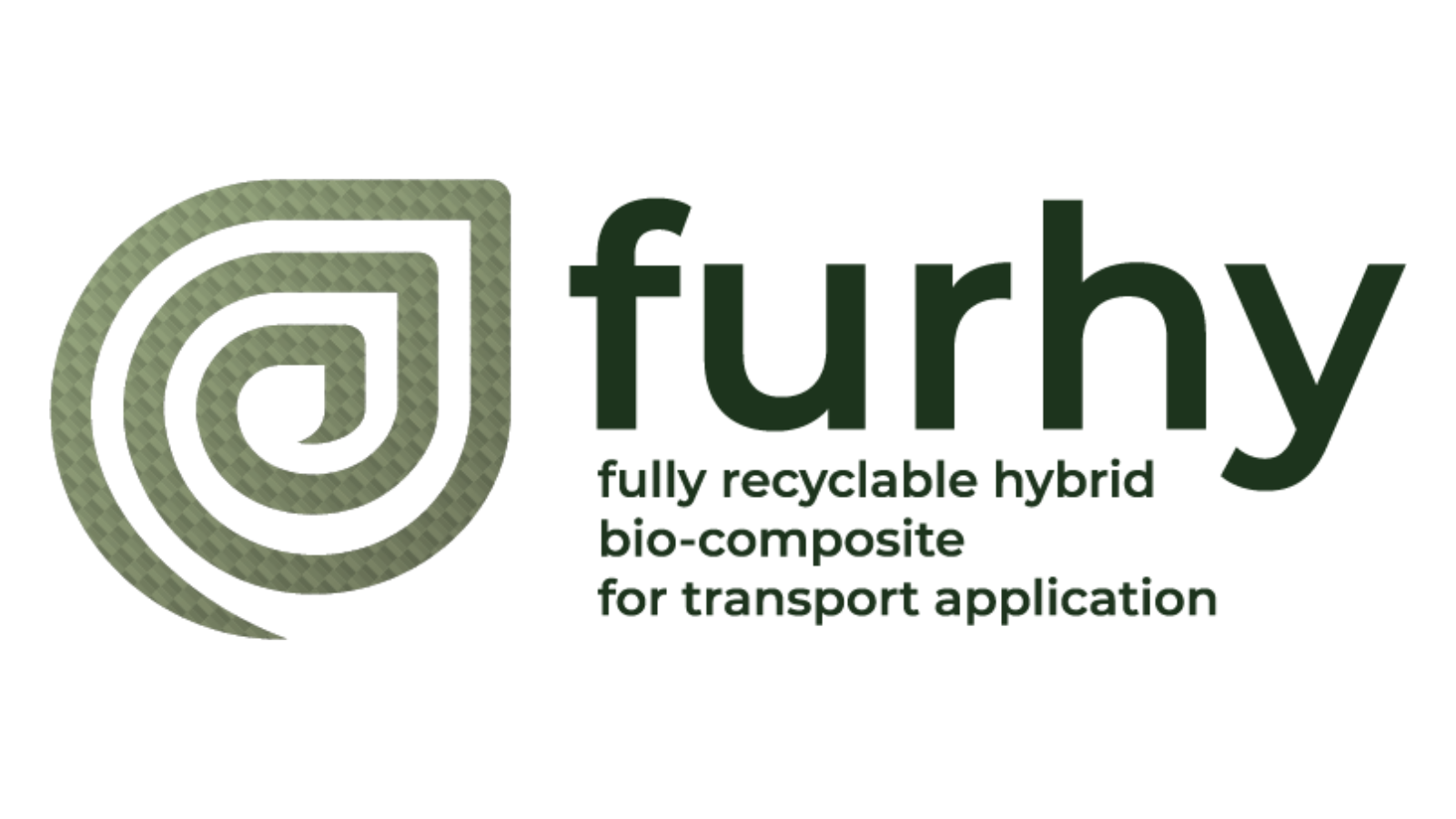Cluster
The EcoComposites Cluster brings together six Horizon Europe research projects fully committed to transforming composites in more sustainable materials through innovations like bio-based alternatives and recycling technologies. Targeting applications in sectors such as transport and construction, we aim to expand the reach and impact of our research, fostering greater visibility, acceptance and adoption of innovative solutions that address pressing global environmental challenges and align with EU Green Deal objectives.
R-LIGHTBIOCOM project
New bio-based and sustainable raw materials enabling circular value chains of high performance lightweight biocomposites
-
r-LightBioCom project brings together 15 multidisciplinary actors from research and the automotive, aeronautics and construction industries from across Europe promoting a paradigm shift from current linear to circular value chains for advanced, bio-based lightweight high-performance composites with significantly improved environmental performance.
The project r-LightBioCom has been selected under the EU’s Horizon Europe research and innovation funding programme to develop new bio-based HPC with significantly reduced environmental impact throughout their entire life cycle, together with technologies and tools for sustainable composite design, modelling and processing.
SUSPENS project
Lightweight and sustainable composite parts for the transportation sector
-
SUSPENS addresses the challenge of reducing the environmental footprint of sandwich and hollow composite structures for the automotive, leisure boat and aerospace industries. Our ambition is to take the mechanical performance of bio-based ingredients such as epoxy and polyester resins combined with natural and recycled fibres to an industry standard.
SUSPENS will also focus on reducing the energy needed for the recycling of complex sandwich and hollow structures.
FURHY project
Fully recyclable hybrid bio-composite for transport applications
-
The FURHY project will develop a new, bio-based, smart and fully recyclable composite material, obtained by a fast and low energy consumption out-of-autoclave process. The matrix will be made by a new bio-based epoxy resin formulation filled by expanded graphite (EG), that will have a multiple role in the enhancement of both material and manufacturing process, providing smart-functions.
Aeronautics and automotive are the main sectors of interest.
REPOXYBLE project
Depolymerizable bio-based multifunctional closed loop recyclable epoxy systems for energy efficient structures
-
REPOXYBLE applies a holistic approach to develop cost and energy effective, recyclable and sustainable biobased epoxy composites, while maintaining their high performance and functional properties during their use phase, by following a multidisciplinary development at every stage of the composites life-cycle: from raw materials, manufacturing and use phase to end of life.
MC4 project
Multi-level Circular Process Chain for Carbon and Glass Fibre Composites
-
MC4 aims to establish circular approaches for carbon and glass fibre composites. It focuses on the environmental and economical inefficiencies of the current European carbon and glass fibre value chains. The MC4 project addresses these issues by implementing research and innovation actions.
Challenges
Composite materials are valued in many industries for their lightweight, strength, versatility and adaptability.
They are found in almost all areas of daily life: from car structures to construction applications over to aircraft components.
Their main advantage lies in the high strength-to-weight ratio, which allows for lightweight yet durable structures, allowing manufacturers to adapt these materials to specific application requirements.
However, traditional composites, typically derived from fossil fuels, pose significant environmental concerns. These materials contribute to high emissions, generate substantial waste, and are challenging to recycle.
Their production processes are also energy-intensive and costly, further straining resources.
Our mission
The projects of the EcoComposites Cluster are addressing these challenges by pioneering innovation in sustainable composite technologies. Our initiatives aim to mitigate the environmental impact of composite materials throughout their entire lifecycle-from production and use to disposal, and beyond with recycling.
Our key priorities include:
reducing emissions and energy consumption,
advancing efficient recycling methods,
promoting circular value chains to minimize waste and reliance on non-renewable resources.
We are creating solutions that not only improve the sustainability of composite materials, but also support their adoption across industries, paving the way for a greener future.
Join us in shaping and driving the future of eco-friendly, bio-based and recyclable composites
Download our Factsheet
This content has been produced in the context of the Horizon Results Booster services delivered to r-LightBioCom (GA N. 101091691), FOREST (GA N.101091790), FURHY (GA N. 101091828), MC4 (GAN. 101057394), SUSPENS (GA N. 101091906), REPOXYBLE (GA N. 101091891). This product does not reflect the views of the European Commission
Policy Brief

Cooperations
BUILD UP is the European portal for energy efficiency in buildings and an initiative of the European Commission. BUILD-UP aims to promote better and smarter buildings across Europe by connecting building professionals, local authorities and citizens.
The European Construction, Built Environment and Energy Efficient Building Technology Platform
The European Construction, built environment and energy efficient building Technology Platform (ECTP) is a leading membership organisation promoting and influencing the future of the Built Environment.
Multi-functional, multi-material magnetic components and structures for electrification
MultiMag aims to revolutionize electric motors and drives by developing high-performance, sustainable materials and multi-material additive manufacturing technologies to improve efficiency, reduce weight, and minimize the use of rare earth elements (REEs). By optimizing design, manufacturing, and recyclability, the project targets a 20% increase in energy efficiency, a 50% reduction in active component weight, and enhanced recyclability of electric motor components.


















